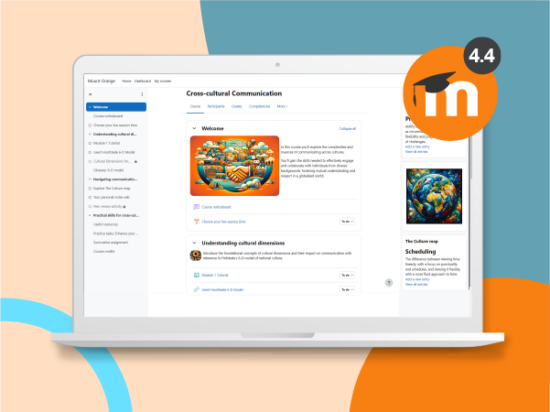Extended enterprise training is a growing trend for organisations that recognise the importance of their customers and partners. It refers to training programmes that educate external stakeholders, such as contractors, wholesalers, distributors, associations, and franchises.
The goal of extended enterprise learning is to create a more knowledgeable and engaged community of individuals who are better able to work with and support your company. The more knowledgeable these people are about your company’s products and services, the more likely they are to purchase or recommend them, and maintain important standards.
Franchise organisations face a unique challenge
If you’ve ever managed a franchise, you’re likely aware of the unique HR challenges. Franchise training falls under the umbrella of extended enterprise since the employees at a given franchisee location are not employees of the franchisor or headquarters; these individuals are considered an external audience. Since training and development can’t be mandated, employees at each location can’t be required to participate and/or engage with learning content from the franchisor. So how do you get it to fly?
An effective eLearning programme can help franchise companies overcome these challenges and improve their operations and business metrics. However, it takes a different approach to implement a universal and successful training programme.
Start with a strong foundation
Before thinking about what your training programmes will look like, make sure you have the best infrastructure in place. Implementing the right learning management system (LMS) will lay the groundwork for successful extended enterprise training. Your LMS will allow you to plan and administer training programmes while tracking completion rates and assessing effectiveness.
Choosing an LMS that supports multi-tenancy, such as Moodle Workplace, will give you a leg up. Multi-tenancy means that a single instance of a software application can serve multiple tenants or users. A common metaphor for multi-tenancy is the modern apartment building; individual apartments have different layouts, sizes, and decor, but they’re located under one roof and share the building’s common areas.
With multi-tenancy, your franchisees will share a single LMS site and database, but each franchise will get its own isolated tenant to safeguard data security and user privacy. As the franchisor managing the LMS site, you can also share courses, learning paths, and reports across your franchisee organisations, while still giving them the freedom to manage their own configuration, users, and content.
With a central platform for training materials and courses, franchisee employees can access the same information and learn the same skills that they deem important.
7 ways gamified and incentivised e-Learning helps franchises
Even with the right LMS software in place, the success of your training will depend on the efficacy of the learning programmes you create. An eLearning programme with gamification and incentives is the best way to overcome the lack of learner engagement and completion, and help with other HR issues. Here’s how this framework can help.
Recruitment
By incorporating an eLearning programme into the recruitment process, using gamification and incentives, franchise organisations can attract and retain the right employees for their location.
Access
E-learning programmes can be accessed remotely and at the employee’s convenience, making it an effective tool to train and keep the employees informed and aligned, regardless of their location.
Consistency
Creating a centralised eLearning programme that is consistent across all locations and uses gamification to make it more engaging, can help to maintain consistency and standardisation across all franchise locations.
Turnover
Making the training more engaging and appealing to employees through the use of gamification, and providing rewards for completing the training, can help your franchisees to increase employee loyalty and reduce turnover.
Engagement
Incorporating game elements, such as virtual currency, leaderboards, and incentives can increase engagement and make the training more appealing to employees.
Retention
Employees are more likely to remember the material they learned and retain it for a longer time. Additionally, incorporating incentives, such as rewards for completing certain modules or passing quizzes, can motivate employees to complete the eLearning programme. This also provides a sense of accomplishment for employees and can help boost their motivation to continue learning.
Culture
Incorporating gamification and incentives into the eLearning programme can create a culture of learning. It creates a unique way to recognise employee learning and cultivates a continuous learning environment. Promoting a culture of learning can be especially crucial for driving engagement across a diverse set of franchise audiences.
By incorporating eLearning programmes that leverage strategic gamification strategies, your franchise will overcome the most common challenges in fostering an engaged and effective workforce.



